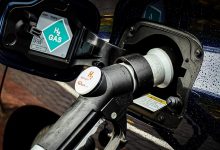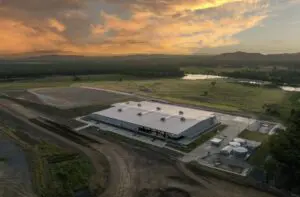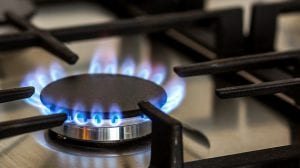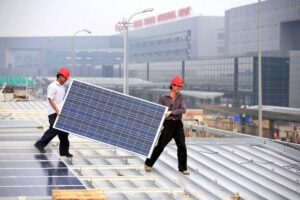As hydrogen prices for vehicle refuelling skyrocket in California, Countrywide Hydrogen is adding a retail division in a bid to keep the green fuel as cheap as possible.
The company says it will sell the hydrogen it produces directly via a new brand called H2Co Energy rather than through a reseller, to cut out the margin a reseller would need to add.
While Countrywide Hydrogen CEO Geoffrey Drucker wouldn’t specify exactly what price they’ll charge at the pump, he did say it’ll be cheaper than in California.
“At the moment our model is pricing hydrogen at the pump at $7.40/kg. Which I think is by far the cheapest in Australia and is far cheaper than in California,” he told RenewEconomy.
Drucker says a low price in Tasmania is partly due to low power prices, and partly to demonstrate that the model can work and be replicated in mainland Australia.
It will also be able to hold that price for long periods of time, due to long-term power and water supply contracts.
The company is talking to German company ibVOGT as well as locals such as Climate Capital that are keen to establish solar farms in Tasmania, for behind-the-metre supply power supply deals.
“It also makes a lot of sense because our hydrogen production facilities are at locations in Tasmania that are already established as transport intermodals, so it makes sense to have the hydrogen available,” he says.
“And we’re not beholden to OPEC oil companies, and the fuel’s being produced at home so there’s no issues about supply security.”
If you think petrol prices are bad…
In California in July hydrogen fuel prices hit US$29.95/kg ($43.89), an all-time high as fuel producers blame inflation and a stark drop in subsidies.
It’s a price that would stop a new industry in its tracks — or an existing one.
In California, fuel cell consumer cars have been on sale and on the road for about 11 years, but the industry is now struggling to fend off an onslaught from sexy electric models and higher pump prices.
In Australia, two fuel cell cars have been approved for sale since 2021, the Toyota Mirai and the Hyundai Nexo, but only available on special order and not for private buyers.
But with no refuelling infrastructure yet available for full cells, facing electric refuelling networks having several years of head start funded by serious money from state and federal governments, and the gathering pace of electric sales, even former chief scientist Alan Finkel has admitted it’s unlikely consumer fuel cell vehicles will make serious inroads against electric cars.
Countrywide Hydrogen plans to sell its product into both the heavy transport and industrial process markets, but the move to retail also includes pumps that consumer vehicle owners can use too.
The first three domestic hydrogen supply projects near Hobart, Launceston and Burnie will each have hydrogen refuelling facilities for fuel cell trucks, buses and cars.
Race for Tasmania is on
Countrywide Hydrogen will be rushing to catch its rival in Tasmania after pushing its launch date out from 2024 to 2025.
Drucker says the timeline couldn’t be helped. Supplier Plug Power was only chosen in July.
“We can’t get them in time to be able to produce hydrogen in 2024. It’ll be in the first half of 2025, which is not much long after what we first predicted.”
Line Hydrogen is looking at a late 2023/early 2024 start date in the state, selling hydrogen through Bonney fuel stations and to its own fleet of trucks.
Both companies have deals with heavy transport companies in Tasmania interested in fuel cell conversions, or are converting their own vehicles to run on hydrogen.
Victoria and Queensland are committing to hydrogen buses and heavy haulage but questions remain over the technical aspects of using hydrogen for transport, given the fuel-to-wheel energy losses in a fuel cell engine are 70 per cent compared to 20 per cent for an electric one.
BHP has chosen electric for its mine site trucks, as has Fortescue Metals, while one commentator on RenewEconomy sister site TheDriven says the technology is “hampered by the laws of science“.









